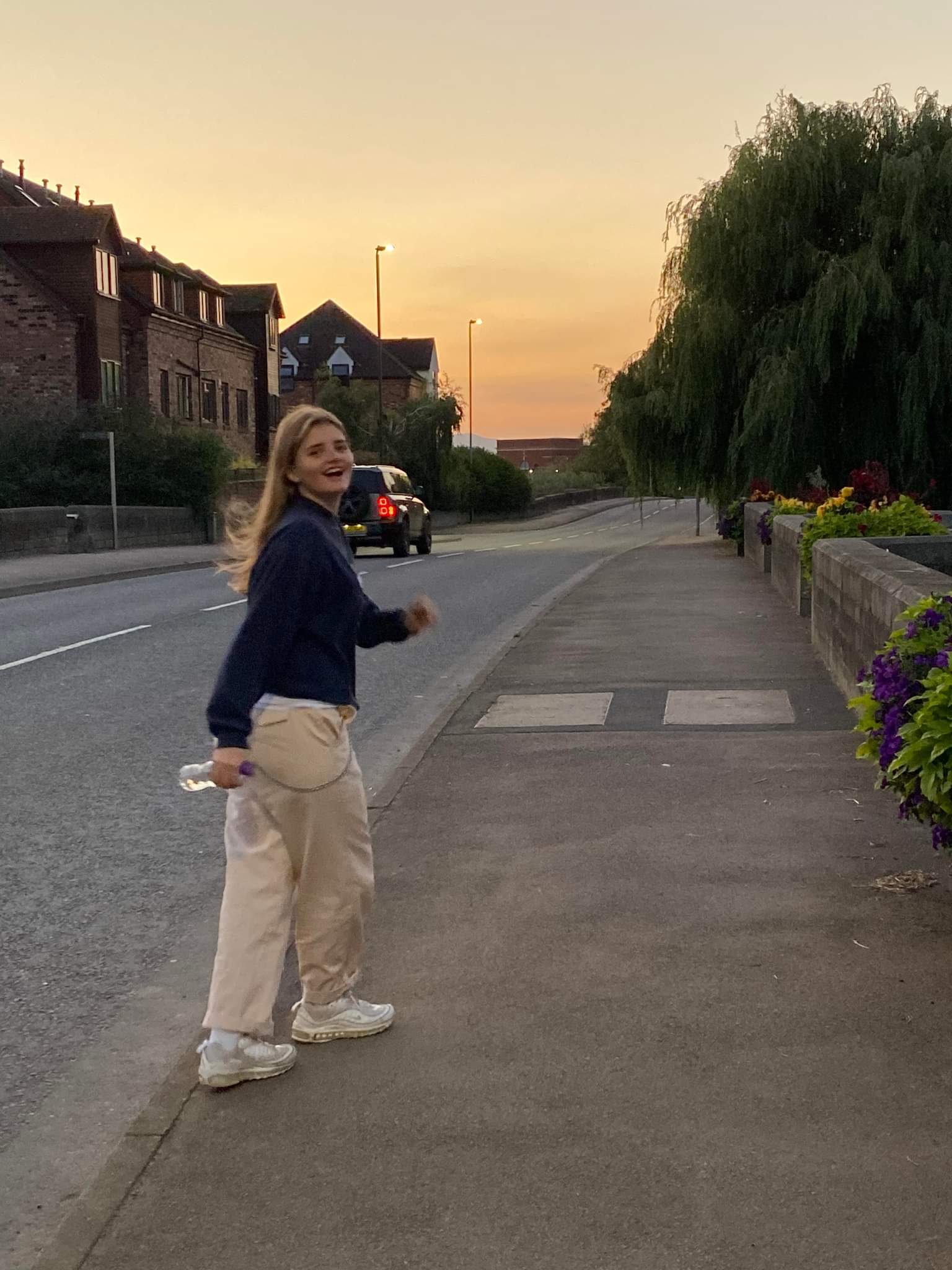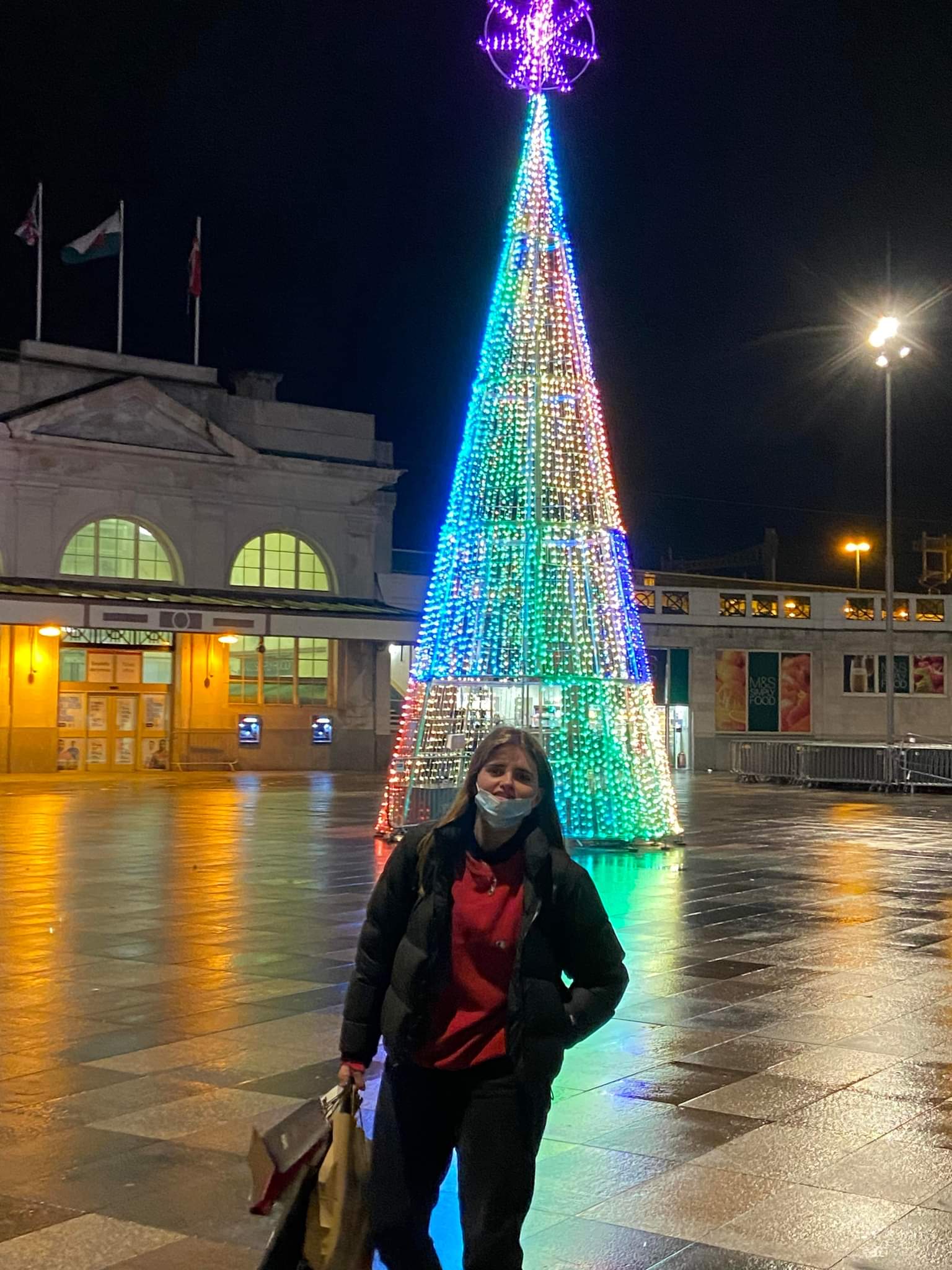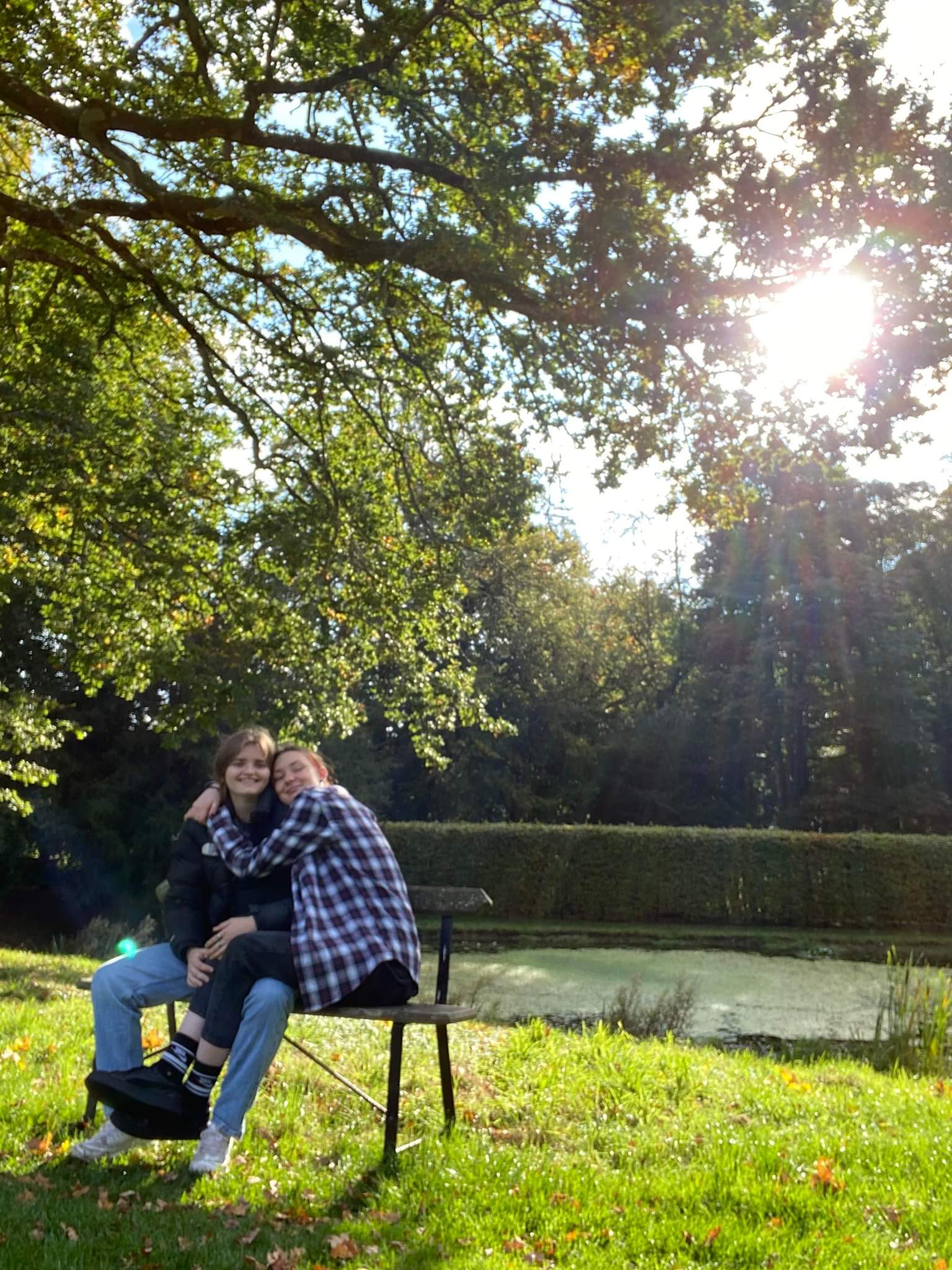A Hidden Gem: Gloucestershire's LGBTQ+ Community
Part 1
How times have changed: Workplaces and schools
By Jack Shute
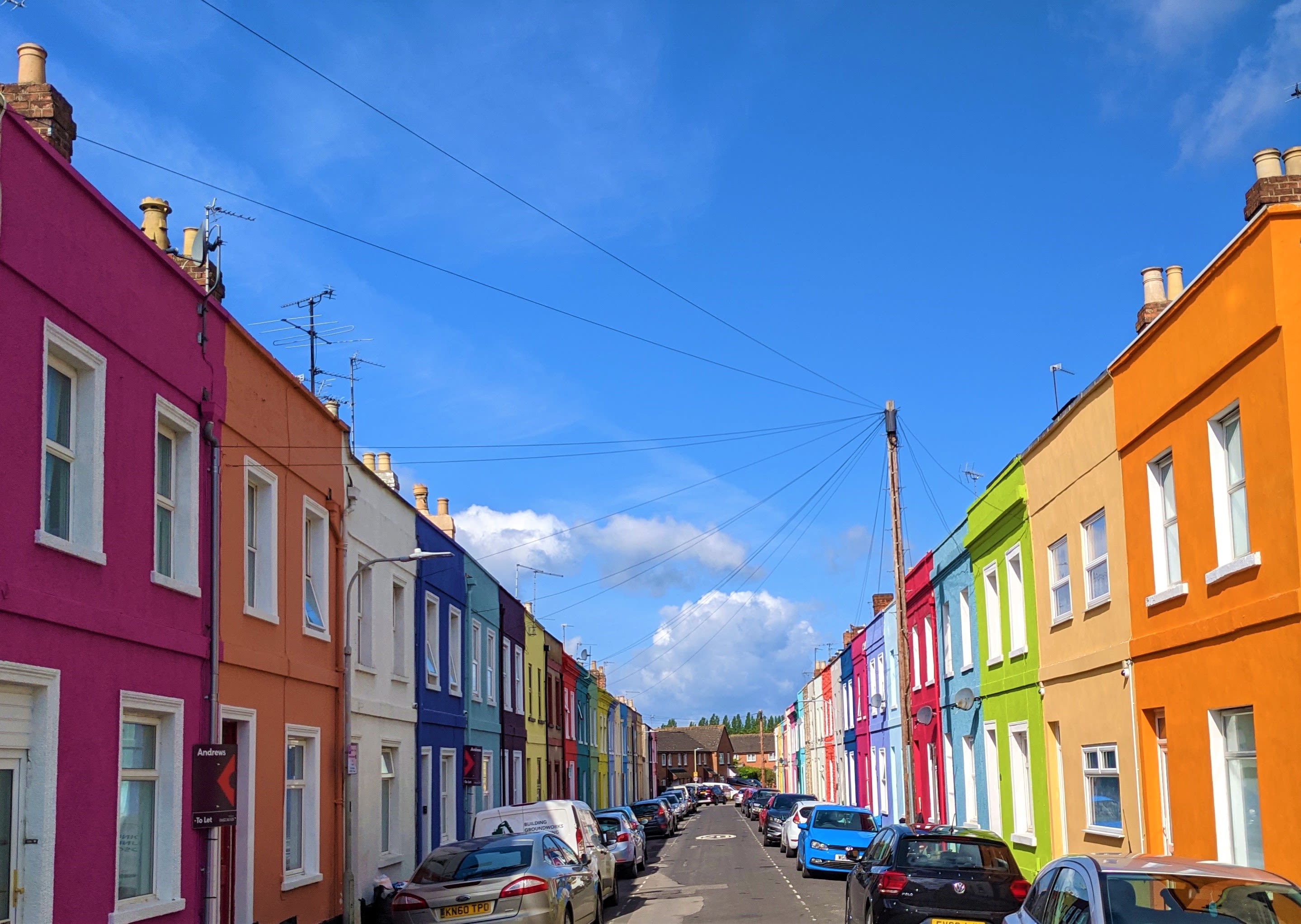
"Are you gay?" The dreaded question. I was 11 years old in secondary school, I didn't even know the answer then. I shook my head and acted unbothered, but that question consumed my mind for weeks. Why would they think that about me? Does everybody think that? Am I too feminine? Am I gay? It turns out yes, yes I am, but perhaps I would have understood this better if I knew what this actually meant.
Growing up gay in Gloucestershire, I had never really been exposed to anything queer. It seemed like something extraterrestrial that would only occasionally be shown or discussed on TV, and even then it wasn't always in a positive light. But at least it was on TV- for older generations, that wasn't even imaginable.
Gloucestershire is a strange place to be queer; it might not provide the buzzing lifestyle of a big city, but it does have a sense of community. The quietness of the county allows the community to come together intimately with specialised events such as Pride, but this isn't enough for everyone. The Gloucestershire LGBTQ+ scene has shifted dramatically in the last few decades, along with the rest of the UK. Progressive laws and changes in public opinion have made life better for all, but Gloucestershire's LGBTQ+ scene and community has seen a constant struggle.
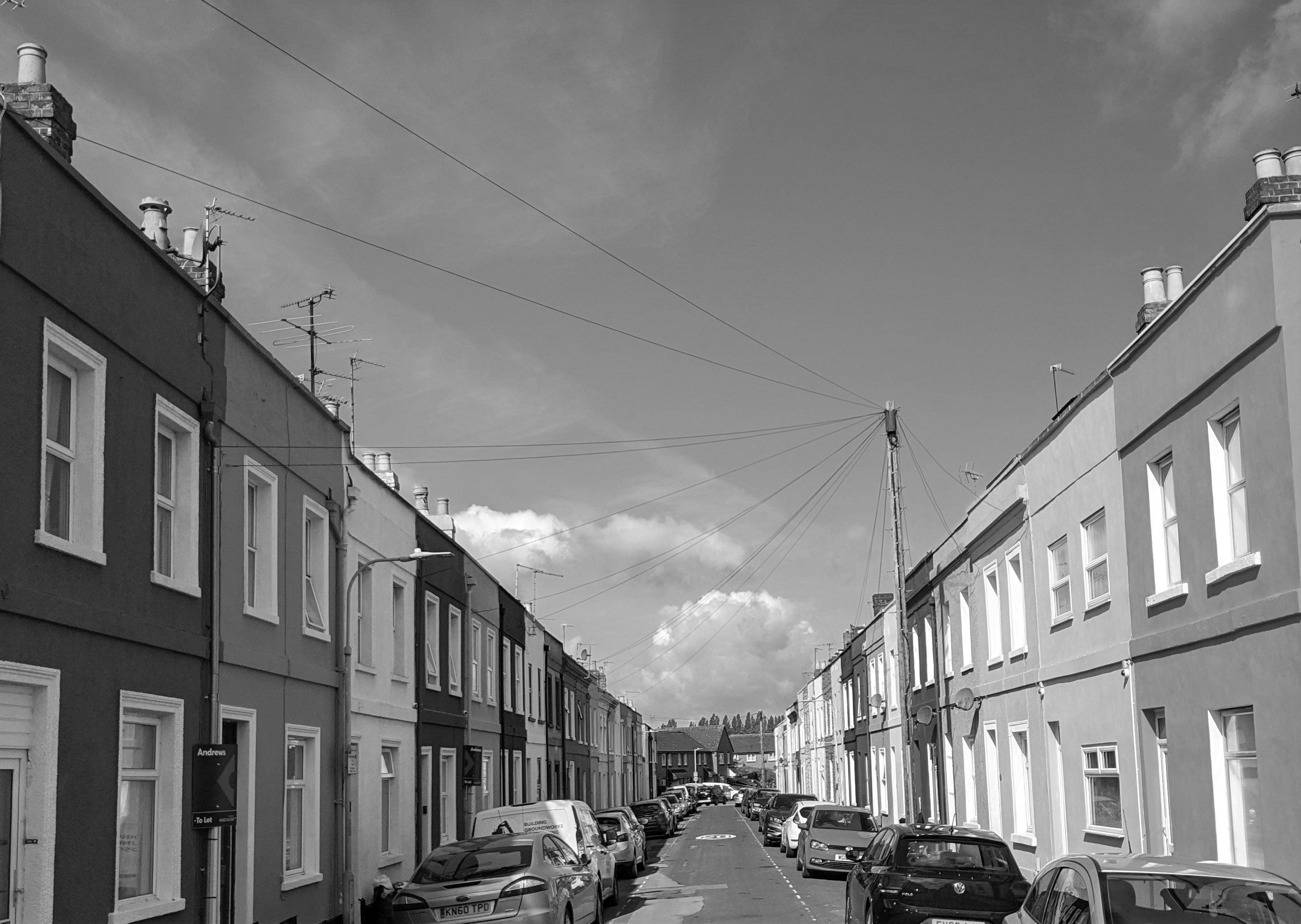
I created a survey to better understand the experiences and opinions of LGBTQ+ individuals in Gloucestershire and to identify what could be changed in order to improve the lives of those within the community. Here is what I found...
To get a sense of the overall LGBTQ+ experience, I have talked to a wide range of individuals living in Gloucestershire, all with different perspectives and stories to help shape the view of queer life in the county.
Grace
GCHQ is the largest single employer in Gloucestershire, housing 5,500 employees since its construction in 2003. The HQ has become a landmark, with locals affectionately naming the HQ 'The Doughnut'. GCHQ first came to Cheltenham in the 1950s, a time when society was extremely anti-LGBTQ+.

"We just had to find a room where we could meet. It was usually an upstairs room, so we'd have to come down to the bar downstairs. We were always tucked away. Out of sight, out of mind." Grace is in her 70's, her real name will remain anonymous to ensure she can't be identified. She's a lesbian who has lived in Gloucestershire all of her life, and an ex-employee at GCHQ in Cheltenham.
Historically gay people were not allowed to join GCHQ; Grace recalls the issues she faced as lesbian in the 60s and 70s, confirming ,"they didn't want that because you'd be open to bribery. It wasn't accepted then." The heavy emotion in her voice proves the difficulty of going back in time to a darker time, she has a strange sense of nostalgia which is disrupted by bittersweet memories.
Grace takes a pensive sigh as her repressed memories are dragged back into her mind, "a girlfriend of mine worked at GCHQ and she was gay, she's been out all her life." She takes a long pause, "when she was working there, they knew she was lesbian. They asked her to leave, they more or less sacked her." She talks so matter-of-fact, but that is exactly how it was. A distant world to what we have in the UK today, where LGBTQ+ people are protected from discrimination at workplaces by The Equality Act 2010.
Society has come a long way since Grace worked for the Government intelligence and security organisation. GCHQ has witnessed a rapid progression in its LGBTQ+ inclusion since the 90s, where their historical prejudice against gay people came to an end. They are now a proud LGBT+ inclusive employer and even became a Stonewall Top 100 LGBT employer in 2017 as they continue to celebrate pride and their LGBTQ+ employees yearly.
Diversity is part of our everyday life at GCHQ #IDAHOBIT https://t.co/sWUeYimixU pic.twitter.com/qaoeIdQH4k
— GCHQ (@GCHQ) May 17, 2016
In 2016 the then GCHQ boss, Robert Hannigan, apologised for not letting gay people work for GCHQ until the 1990s, saying it was wrong and the "nation's loss". He also said Alan Turing, the computer pioneer and code breaker, faced a treatment which had been "horrifying" for being gay. Despite cracking the Enigma code at GCHQ’s base during the Second World War, Alan Turing was harassed for being gay by GCHQ. He eventually took his own life in 1954, after losing his job following an unfair conviction for having relations with a man.
A giant celebratory artwork of Alan Turing, inspired by the LGBTQ+ Pride flag, was unveiled at the very center of GCHQ last year. This couldn't be a clearer sign of change and progress; what was once shunned upon is now at the very heart of GCHQ for the world to see.
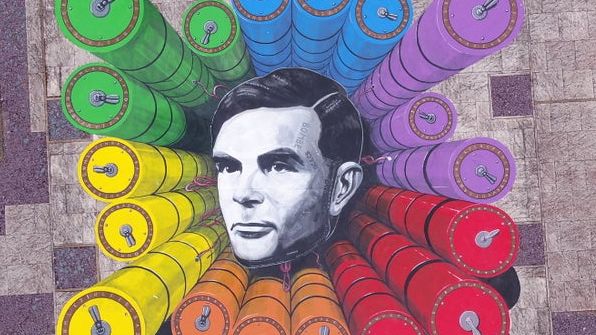
Joe Hill/GCHQ The Alan Turing artwork sits in the center of GCHQ
Joe Hill/GCHQ The Alan Turing artwork sits in the center of GCHQ
Grace left GCHQ in the late 70s, a time where being openly gay there was still unaccepted, and she didn't dare tell a soul. However, she returned later in life during the early 2000s, and she couldn't believe how much had changed, "When I went back, it was completely different. I remember when (a GCHQ) letter came to my house and it asked me 'are you gay, lesbian, transgender'. Now you actually say what you are. And I said lesbian. Now what they're more interested in is people who are in debt or owe money or haven't got a lot of money, who would be open to bribery."
Despite the progression made, the past has clearly stuck with Grace, hence why she was certain not to reveal her true identity. The very fact she wishes to remain anonymous shows that the shame of being openly LGBTQ+ is still around and this stigma from the past has been ingrained into her mind. When asked about coming out, she shakes her head with certainty as she gives a half-suppressed laugh, "I don't tell every person I meet that I'm gay. Only my close friends. There's probably five of them. They know I'm gay. I don't need to tell them my life, I don't tell them my life anyway, so why would I tell them I'm gay?"
Although she recognises the difficulties she faced in the past, she is happy to be her true authentic self today, "No, I wouldn't change anything. You can't change the past. So I don't ever think I wish I did this or did not do that. I don't regret anything." She sounds certain with a defiance in her voice, "The 60s and 70s, I don't think I'd like to change. Because it was as it was, and it was great times. I mean, times were difficult for gay people and I think that's very sad." She finishes on a sombre note with a heaviness in her voice, "I would have liked it to have been a bit more open when I came out."
Hollie
The National LGBT Survey 2018 found only 3% of respondents had discussed sexual orientation and gender identity at school. Where these topics were discussed at school, only 9% of respondents said that the discussions had prepared them well for later life as an LGBT person.
In 2022, what are Gloucestershire's schools doing to support the community?

"I felt different when I was in Year Seven and I didn't really become comfortable in myself until Year Ten. I didn't have anyone to speak to about it because I didn't actually want my friends to know, I wanted someone else to talk to." Hollie is an 18-year-old Sixth Form student at Chosen Hill School (CHS) in Gloucestershire. She has recently come out as lesbian and has since become an LGBTQ+ ambassador at her school; something that didn't exist only months ago.
Hollie's life as an out and proud young lesbian is incomparable to Grace's experience; not only is she accepted, but the fact that she is queer is celebrated among many of her peers. Her smile is wide and bright as she discusses coming out, "It was all positive. I don't know about you, but in my mind, I always have those doubts and those insecurities about how certain people will react. I think I was worried about these boys in my year, but it turned out completely fine. I've only ever had positive feedback since it's happened. So it's been good." She seems to be glowing as she sits in her bright room with the sun shining in. The wall behind her is covered in timetables, notes and calendars; she's an organised high achiever.
Hollie has become a beacon of hope in her role as an advocate for her fellow LGBTQ+ students at CHS. The support is needed as more young people are coming out; it has been estimated 2.7% of the UK population aged 16 years and over identified as lesbian, gay or bisexual in 2019, according to the Office for National Statistics (ONS). Younger people were most likely to identify as LGB in 2019, with 6.6% of all 16 to 24 year olds identifying as such. CHS are working on their support system; with the help and encouragement from her teachers Mrs Critchley, Miss Hall and Miss Hanwell, Hollie has voiced the issues faced by LGBTQ+ students throughout the school. With a proud nod and a twinkle in her eye she agrees, "I have a big voice and I'm confident so I'm not shying away from it, so I was happy to step forward. It was to make sure that everyone feels accepted in a classroom and to help the younger years." She takes a moment to think as she looks up and admits, "I was a bit cautious of doing it, because of the backlash that you get. But I've had a year seven girl come up to me and speak to me about it and it's just the little stuff like that, it makes you realise how much of an impact you can make on other people."
The school are working towards attaining the Rainbow Flag Award, a national quality assurance framework for schools which focuses on positive LGBTQ+ inclusion and visibility. They have completed whole staff training and a full student voice across the whole school. They are now implementing positive change in light of these surveys. They even held a #ComingOut Day for Pride Month in June 2021 as part of the statutory relationships and sex education class. This allowed Year 9 students to take part in four LGBTQ+ workshops with guest speakers and a Q&A session with Gloucestershire's top drag performers, Misty Monique and Miss Demenour McCall. The goal was to teach young people in a non-judgemental way to understand human sexuality and to respect themselves and others. It also provided students with the knowledge and support they might have with their own sexual orientation and gender issues.
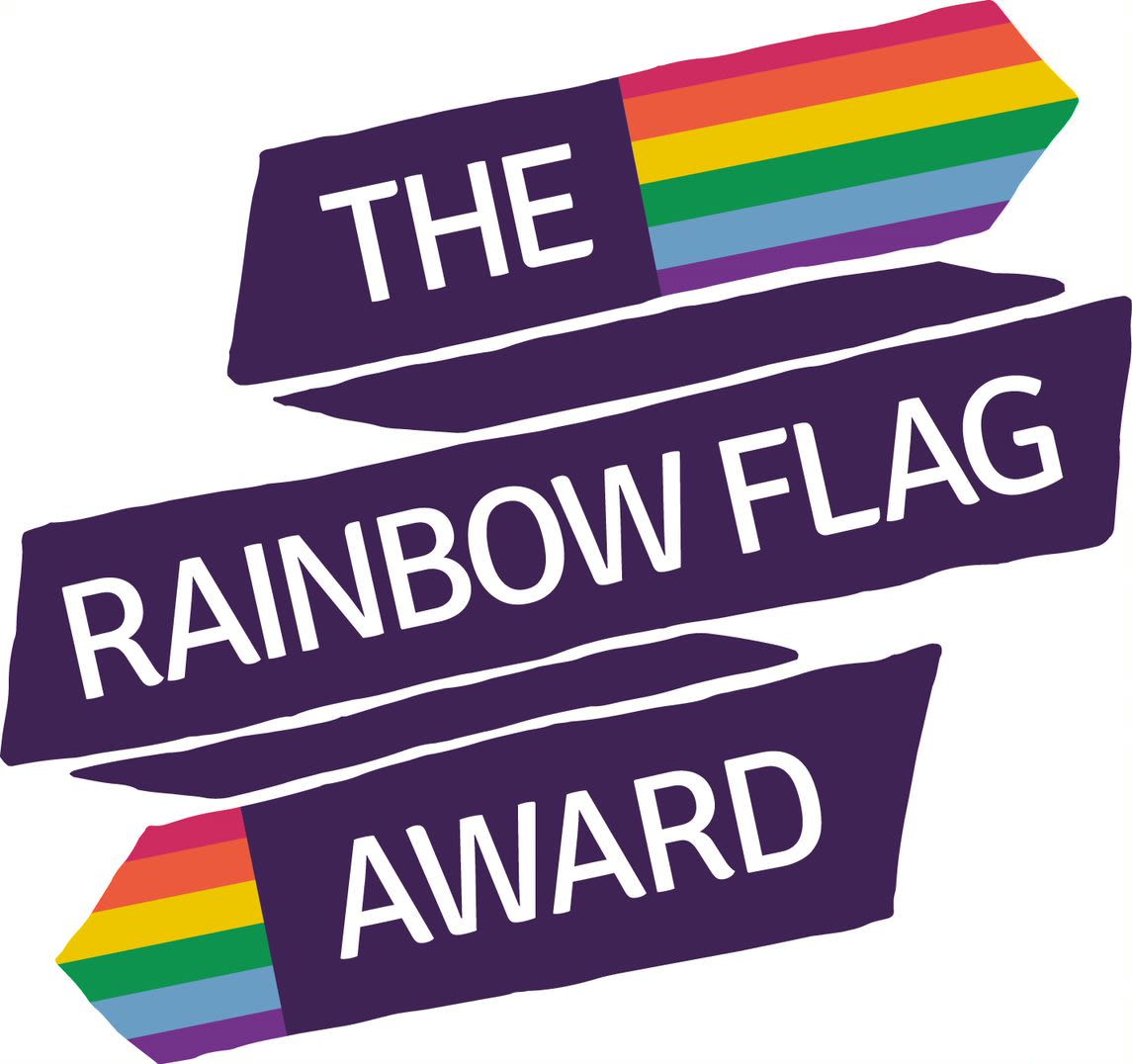
The Rainbow Flag Award logo, RFA
The Rainbow Flag Award logo, RFA
Hollie has already seen a huge movement towards positive attitudes and understanding of LGBTQ+ students in the school. She frowns slightly in a serious manner as she explains her main goal as the LGBTQ+ ambassador, "I think the main thing was the homophobia in classrooms. I hope that it becomes less tolerated at school because that's what the main focus of what we want, for them to feel safe. I hope that by the time I leave, they have come up with a new rule of how it's not tolerated at all."
Thanks to teacher Emily Hall, there is a safe space for LGBTQ+ students at the school. Staff have hailed her as a huge champion for the rights of LGBTQ+ members, she has run all of the staff training and started an LGBTQ+ group called PRISM. Anyone is free to join at lunch times and it has been a safe haven for students like Hollie who have helped so many others, "Since I've come out, a lot more people have been more comfortable to say something as well, it's made people aware. Like 10 or 12 people have come out and become more comfortable with themselves." Her smile widens and her eyes lighten up as she starts to giggle to herself, "And I've also seen the younger years with those rainbow tote bags that everyone carries around or they've got a rainbow badge on a lot more! When I started at school it wasn't like that."
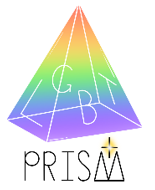
PRISM Club logo, Chosen Hill School
PRISM Club logo, Chosen Hill School
However, when it comes to LGBTQ+ safe spaces outside of school, Hollie believes Gloucestershire is lacking completely. She shrugs with a disheartened tone in her voice, "I haven't experienced it (the LGBTQ+ scene) fully. I do feel when I go to the clubs, it is mainly just boys, and there isn't a gay club." Her tone turns to pure joy as she exclaims, "I went to London and there's a whole gay street and it was one of the best times of my life! It was just amazing." She pulls an expression of disappointment, ending on, "But we don't have that kind of community in Gloucester. So it's a bit different."
Although LGBTQ+ venues are practically non-existent in Gloucestershire, Hollie has had an overall positive experience as a lesbian. The Government's National LGBT Survey 2018 found that over two thirds of their respondents (68%) said they avoided holding hands in public with a same-sex partner for fear of a negative reaction from others. However, Hollie proves how the younger generations could be seeing improvements, "The people around me, my friends and family and people at work, they are all okay with it. I can I walk through Gloucester in town and hold my girlfriend's hand, and I don't get any comments or anything like that. It's not bad. You might get a couple side eyes from the older people, but that's almost expected. I think I feel welcome. I haven't been hate crimed properly, so yeah."
